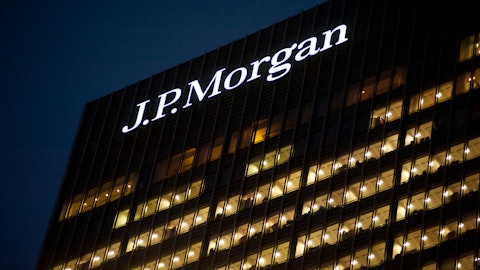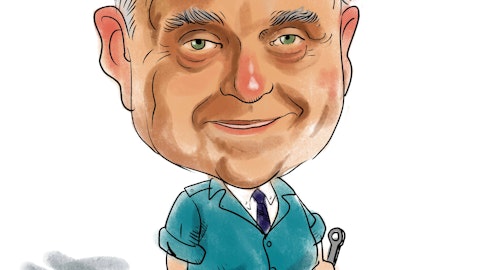Insider trading watchers tend to pay more attention to insider buying than insider selling because the latter is much more cumbersome to interpret (better say, impossible to interpret accurately). Officers and directors of U.S. public companies are required to file a report with the SEC documenting their trades within two days, which enables non-insiders to monitor insider trading data very efficiently. However, the increased usage of stock-based compensation as part of insiders’ compensation programs has made it particularly hard to accurately interpret insider selling. As a general rule, heavy insider selling is perceived as a bearish signal by the investment community, but it is not as strong as insider buying on most occasions. To increase the likelihood of finding informative insider selling, investors should avoid examining insider sales conducted under pre-arranged trading plans or transactions related to freshly-exercised stock options. Instead, one should look for spur-of-the-moment insider sales, particularly clusters of insider selling. Insider Monkey examined the majority of Form 4 filings submitted with the SEC on Thursday and pinned down three companies with noteworthy spontaneous insider selling.
Through extensive research, we have determined that the due diligence that the investors in our database employ, as well as their long-term focus makes them perfect targets to emulate. However, the results of our analysis have also shown that the small-cap picks of these funds can generate much better returns, with the 15 most popular small-cap stocks beating the market by an average of 95 basis points per month (read more details here).
Brokerage Firm Charles Schwab Saw Its Founder Sell Massive Amount of Shares
Let’s begin our discussion by having a look at the massive insider selling witnessed at Charles Schwab Corp (NYSE:SCHW). Chairman Charles R. Schwab, the founder of Charles Schwab, reported selling 280,000 shares on Wednesday and 280,000 shares on Thursday at prices that ranged from $28.64 to $29.38 per share, all of which were held by a trust fund. After the recent sales, Mr. Schwab’s trust fund continues to own 100.69 million shares. The founder of the first U.S. discount brokerage firm also holds a direct ownership stake of 9.07 million shares, as well as an additional indirect ownership stake of 34.64 million shares held by a limited partnership.
Charles Schwab Corp (NYSE:SCHW)’s revenue and net income increased last year despite increased stock market volatility and low interest rates. The company added 1.1 million new brokerage accounts to its client base in 2015, while its active brokerage accounts increased 4% year-on-year to 9.8 million. Charles Schwab’s main sources of revenues include asset management and administration fees, which involve its proprietary and third-party mutual fund and ETF offerings, net interest revenue, as well as trading revenue. As a result, an increase in short-term interest rates is anticipated to boost the company’s top-line figure significantly, as well as enable the company to remove fee waivers for asset management fees from certain Schwab-sponsored money market mutual funds.
Earlier this month, analysts at Jefferies reiterated the ‘Buy’ rating on Charles Schwab but cut the price target to $33 from $34, which is said to reflect the timing of future interest rates. Shares of Charles Schwab are down 9% since the beginning of 2016 and change hands at around 19.0-times expected earnings, significantly above the forward PE multiple of 11.8 for the Investment Banking and Brokerage sector. Barry Dargan’s Intermede Investment Partners acquired a new stake of 519,619 shares of Charles Schwab Corp (NYSE:SCHW) during the March quarter.
Follow Schwab Charles Corp (NYSE:SCHW)
Follow Schwab Charles Corp (NYSE:SCHW)
Receive real-time insider trading and news alerts
The next pages of this insider trading article we discuss the insider sales registered at PacWest Bancorp (NASDAQ:PACW) and Citigroup Inc. (NYSE:C).
This Regional Bank Had One Executive Sell Shares This Week
PacWest Bancorp (NASDAQ:PACW) also had one of its executives unload a sizable block of shares this week. Suzanne R. Brennan, Executive Vice President of Risk Management, sold 20,000 shares on Wednesday at a weighted average price of $40.01, which were held in the Brennan Family Trust that currently owns 6,478 shares. Ms. Brennan also holds a direct ownership stake of 22,500 shares.
The holding company of the wholly-owned subsidiary Pacific Western Bank has seen its shares gain 17% in the past three months, but the stock is still down 6% year-to-date. In October 2015, the company acquired Square 1 Financial Inc. to increase core deposits, expand its lending products, as well as increase presence in the technology and life-sciences credit markets. As a result, the company formed the Square 1 Bank Division of its bank that provides a portfolio of financial services focused on entrepreneurial businesses and their venture capital and private equity investors. With the successful integration of Square 1 Financial, the company’s management is set to focus on two key corporate initiatives in 2016. First, the company plans to convert its current customer accounts processing system to a new one offered by another software vendor. Second, the company will submit its first DFAST capital stress test to regulators, the success of which may have an effect on dividends and share repurchase initiatives.
There were 22 hedge funds tracked by Insider Monkey with stakes in PacWest Bancorp at the end December, which amassed 5.40% of its outstanding shares. Meanwhile, the stock is priced at 13.2-times expected earnings, slightly above the forward P/E ratio of 11.5 for the Regional Banks sector. Ken Fisher’s Fisher Asset Management reported owning 2.15 million shares of PacWest Bancorp (NASDAQ:PACW) through the latest round of 13Fs.
Follow Pacwest Bancorp (NASDAQ:PACW)
Follow Pacwest Bancorp (NASDAQ:PACW)
Receive real-time insider trading and news alerts
The Fourth-Largest U.S. Bank Witnessed Executive Sell Shares This Week
Let’s wrap up our discussing by having a look at the insider selling registered at Citigroup Inc. (NYSE:C). Chief Risk Officer W. Bradford Hu discarded 9,528 units of common stock on Wednesday for $45.83 each, cutting his overall holding to 53,282 units.
Just recently, the Federal Reserve and the Federal Deposit Insurance Corporation released their review of the so-called living wills, which represent plans that explain how banks would go bankrupt without destabilizing the broader financial system, saying that Citigroup was the only bank among the top eight U.S. banks to have designed an acceptable plan. Moreover, the bank also reported quarterly-financial results that beat market expectations even though sustained uncertainty in financial markets and weak investor sentiment put significant pressure on Citigroup’s financial figures for the first quarter. The fourth-biggest U.S. bank in terms of assets has been busy injecting new dynamism and freshness into the company by exiting its consumer businesses in Brazil, Argentina and Colombia, as well as cutting jobs. It is also important to note that the bank’s allowance for bad loans declined to $12.7 billion, which account for 2.07% of total loans.
The shares of Citigroup are 9% in the red so far in 2016 despite having gained 18% in the past three months. Citigroup’s shares current trade at a forward P/E multiple of 8.4, which is below the forward P/E ratio of 10.4 for the Diversified Banks sector and the ratio of 18.5 for the companies included in the S&P 500 gauge. The smart money sentiment towards the fourth-largest U.S. bank declined during the fourth quarter, with the number of funds invested in the bank shrinking to 106 from 121 quarter-on-quarter. David Keidan’s Buckingham Capital Management owns 144,250 shares of Citigroup Inc. (NYSE:C) as of March 31.
Follow Citigroup Inc (NYSE:C)
Follow Citigroup Inc (NYSE:C)
Receive real-time insider trading and news alerts
Disclosure: None




